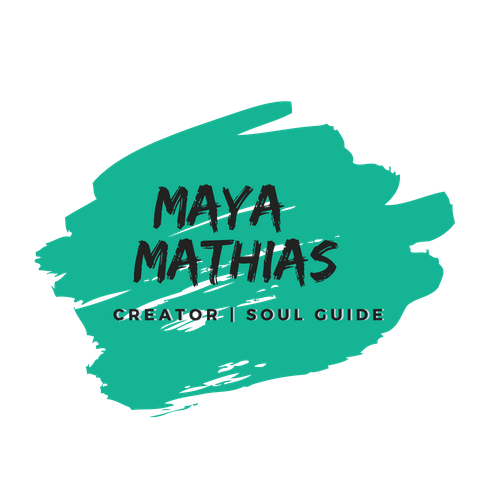
Feb 17 2019
Valentine’s Day will forever be a day of heartbreak for the survivors of Parkland’s school shooting. One year on, progress has been made on some fronts, and there is more work to be done. This was also a week when America averted a second government shutdown, as it began to negotiate a national emergency declaration around immigration on its Southern border.
As The World Turns
The lessons, and scars, of Parkland
On Feb 14 2018, America witnessed the horror of a mass shooting at Marjory Stoneman Douglas High School in Parkland, Florida. Seventeen students and staff members were killed, and seventeen others injured. Ranked as one of the ten deadliest shootings in modern US history, it spawned student-survivors-turned-activists, and generated some swift new gun control laws in at least 4 states. The desire for change has been a long time coming, and milestones like the March for Our Lives event have funneled the pain from a massacre into a 10-point policy agenda. The Marjory Stoneman Douglas students who endured the horror of the shooting, are continuing their work. They speak with a force of will that many of us can’t, and advocate for a cause that’s seared into their bones.
Parkland survivors marked the one-year anniversary in their own way, with quiet mourning and space to continue the healing process. And while the political will to demand federal action from Congress has diminished, some legislators did begin their first major move to tighten gun laws. The wheels of lasting change have been set in motion.
A national emergency begins its court fight
The more I pen stories about America’s political leadership for this newsletter, the more I realize what drives me to pick and write them. When the American system of government is at its best, it upholds its constitution and respects the separation of governing powers. When it fails itself, a subconscious (and intuitive) alarm bell rings within me.
So I understand the stream of trepidation that rippled through the US Congress, when the White House declared a national emergency this week to secure additional funding for a barrier on the US Southern border. This happened after Congress, which has the power of the purse, settled on a spending bill to avert a second government shutdown – but it was a bill with insufficient border wall funding, in the eyes of the White House.
Early critics of this national emergency declaration point out that:
“…whether we have a Democratic or Republican president, and no matter how noble the cause, we should be frightened of presidents acting unilaterally to deal with a national emergency. That would completely undermine the checks and balances and the separation of powers that are at the core of our constitutional system of government. Until and unless Congress authorizes funds for the border wall, it is unconstitutional and illegal for President Trump to use any other funds for this purpose.” – Erwin Chemerinsky, Dean and Jesse H. Choper Distinguished Professor of Law, University of California, Berkeley School of Law
Legal arguments that support the national emergency will emerge soon enough, and this declaration will likely end up making its way through the US courts.
What will I be watching for? Ultimately, a sense of where and how the constitution holds.
Om Is Where The Heart Is
Where should your loyalty lie?
Loyalty binds us to a space and place in time. It gives our life meaning and purpose, a sense that we’re part of something outside ourselves.
But what happens when your loyalties collide? Sometimes, declaring your loyalty to one group means forsaking or betraying another. How do you navigate that loyalty, without losing yourself in the process?
This struck me when I saw the fallout Representative Ilhan Omar faced this week, for tweets that many saw as anti-Semitic. In a climate where people of her (Muslim) faith are denigrated, it’s all too easy to want to declare her loyalty to that faith, however poorly-articulated (and potentially misinformed) her attempts were. But now that she’s been sworn in to the US Congress, she needs to consider an allegiance to her political party and country. And her words and actions now need to reflect that new loyalty.
What, then, could she do to reconcile that collision of loyalties? There isn’t an easy or one-size-fits-all answer. It might, for instance, require a deeper look at the source of her disdain for the Jewish community. Fareed Zakaria thoughtfully offers this slice of history for context:
“In the early centuries of Islamic rule, (Bernard Lewis) writes (in ‘The Jews of Islam’), there was ‘a kind of symbiosis between Jews and their neighbors that has no parallel in the Western world between the Hellenistic and modern ages. Jews and Muslims had extensive and intimate contacts that involved social as well as intellectual association — cooperation, commingling, even personal friendship.’
Decades of state-sponsored propaganda (in the 20th Century) have had an effect. Anti-Semitism is now routine discourse in Muslim populations in the Middle East and also far beyond. While some Arab governments have stepped back from the active promotion of hate, the damage has been done.”
Not all divided loyalties can be answered by our historical or political upbringing. Sometimes, it can be an impossible choice between two people you adore e.g. your spouse vs your parent.
But it’s an inner journey you will need to traverse, and to be able to stand firm in when those loyalties force your hand.
News and Views
Searching for love – outside or in?
There’s a view in spiritual circles, one which I’m growing into more each day, that a search for love is ultimately a quest for self-love and understanding.
I attended a Valentine’s Day event this week, an event I’d known about for years but avoided. I met my soul mate about a decade ago, then lost him to an illness that ravaged his body. The pain and grief were unbearable for a time, so I didn’t know if I could be a in a room filled with loving couples, much less on Valentine’s Day.
I showed up at the event, and felt more than okay.
Instead of the pain and grief, my heart was filled with a sweet gratitude for the time we’d shared on earth. And instead of feeling inadequate, like I “should” have had a partner with me, my soul felt curiously complete. I was not expecting to feel so good in my own skin, not in that setting, not on that night. And yet, there I was, at peace within myself.
That’s when I realized I had transcended one more soul lesson, that I had gone from desiring a “you complete me” relationship to an “I complete me” plane. My heart isn’t closed to another love, but it is now very much open to itself. How glorious.
If you’re looking for some guidance, to rekindle that sense of self-love and understanding in your being, I invite you to sign up for a Soul Guide Session with me.
In the next issue:
I’m pretty darn sure I’ll be launching podcast #2 next week, so watch this space for all the ways you can listen and join that conversation!
Till then…
Live well and lead large – Maya

